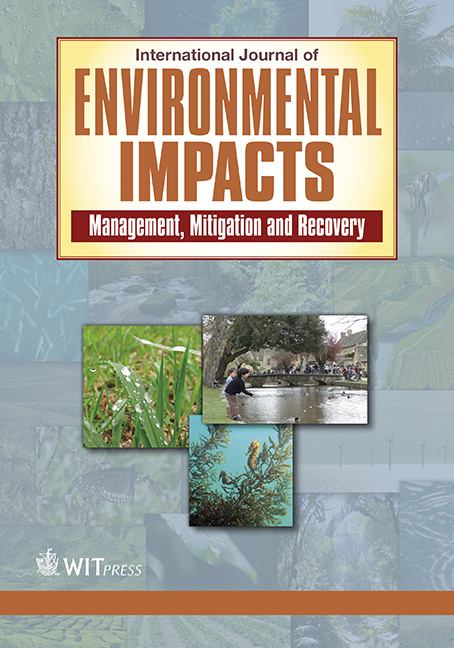Potential of public and professional communications in implementation of urban environmental programs
Price
Free (open access)
Volume
Volume 4 (2021), Issue 2
Pages
13
Page Range
113 - 126
Paper DOI
10.2495/EI-V4-N2-113-126
Copyright
WIT Press
Author(s)
Irina Topchiy & Alina Fatkullina
Abstract
This article is an independent study of Moscow residents’ extent of awareness of the urban environmental programs. The aim of the study is to develop measures to support the urban ecology by schools of architecture. In 2019, the authors carried out a sociological survey with participation of several socially active groups: students of Moscow schools of architecture, participants of the Moscow Longevity Project and schoolchildren. The survey results showed that respondents are nearly unaware of the Environmental Doctrine of the Russian Federation, the UN Sustainable Development Goals and urban development programs. And, this is an impediment to implementation of environmental projects. Since the success and speed of implementation of environmental projects today to a greater extent depends on the combined actions of professionals: engineers, architects, economists, transport specialists, administrative workers and other persons who are ‘line of duty’ responsible for the quality of the urban life. And, support of residents who live, work and rest in the city space. The influence of residents on the final decision is really great, and they can be called ‘non-professional players’ of architectural and urban planning activities. Due to mismatching local and global interests, the desire to preserve the prevailing everyday habits and poor understanding of the long-term benefits from implementation of large-scale projects, residents’ opinion concerning the prospects for urban development may not coincide with the opinion of professionals. And then conflicts arise. Environmental upbringing and education, covering all social groups of the urban population and including various types of activities, are today recognized as the most effective way to promote environmental projects. The survey proves that the respondents are well informed about the environmental problems of the city and unanimously believe that the responsibility for the implementation of the Projects lies with the city administration. They are ready to embrace an ‘ecological lifestyle’ if it brings economic benefits and does not disturb the customary lifestyle. It is concluded that in order to attract Moscow residents to implementation of environmental programs, it is necessary to be increasingly cognizant of the differences in the interests of social groups, replace economic pressure with economic benefits, and upscale an ecological lifestyle via media and public additional education.
Keywords
‘green framework of the city’, social interaction in urban planning, strategies of urban development, supplementary and public architectural education, urban environment, ‘urban softness’.




